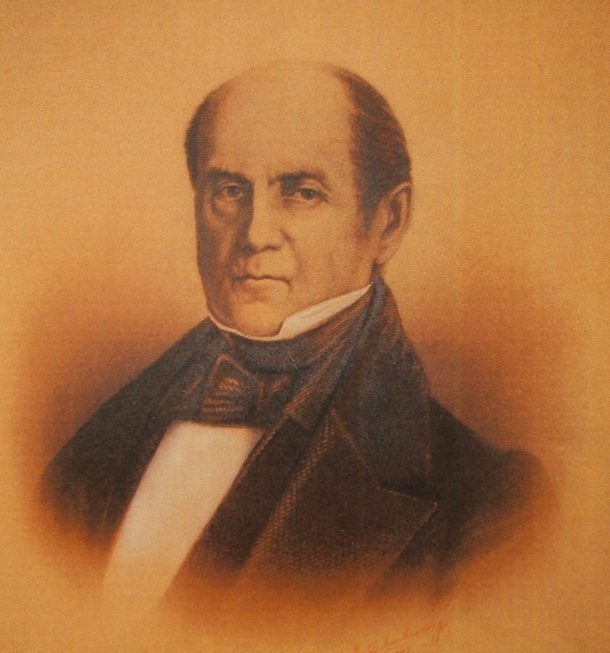Get Today in Masonic History into your Inbox. Sign up today for one of our email lists!
Need an article for your Trestleboard/Newsletter see our Use Policy
Martin Chittenden is Born

Today in Masonic History Martin Chittenden is born 1763.
Martin Chittenden was an American politician.
Chittenden was born on March 12th, 1763 in Salisbury, Connecticut. At the age of thirteen he moved to Williston, Vermont after his father, Thomas Chittenden, founded the town. He attended Mares School, before going on to Dartmouth College in Hanover, New Hampshire. He graduated from Dartmouth in 1789.
After graduating from Dartmouth, Chittenden moved to Jericho, Vermont where he became involved in the agriculture and mercantile industries. In 1789 he was appointed Justice of the Peace. In 1791 he served as a delegate to the state convention to ratify the United States Constitution.
In 1790, Chittenden became a member of the Vermont House of Representatives serving until 1796. Chittenden's father, Thomas, became the first Governor of Vermont the same year. In 1791, Vermont became the 14th state. During this time Chittenden served as clerk of the county court in Chittenden County, Vermont from 1790 to 1793. From 1793 to to 1795 he was a judge in the Chittenden County Court. From 1796 to 1813 he served as the Chief Justice of the Chittenden County Court. He was also the first census collector for Chittenden County.
In 1793, Chittenden also began a military career with the First Militia. He served as captain in 1793, was promoted to lieutenant colonel in 1794, served as brigadier general in 1799 and was promoted again in 1799 to major general. He served in the militia as a major general until 1803.
In 1803, Chittenden was elected to the United States House of Representatives under the Federalist Party. He served until 1813.
In 1813 Chittenden was elected as the Governor of Vermont and the first Federalist to hold the office. He served only one term, during his term he had to deal with fighting between British and American forces on the Vermont-Canadian border. Concerned with the British encroachment on Plattsburgh, New York, the militia asked Chittenden for permission to intervene to help repel British forces. Chittenden refused and many of the leaders in the militia felt he was getting pressure from his advisers to keep Vermont out of the battle.
After leaving office, Chittenden never sought elected office again. He was appointed as a probate judge and served as town representative of Williston from 1821 to 1823.
Chittenden passed away on September 5th, 1840.
Chittenden was a member of Washington Lodge No. 7 in Burlington, Vermont. Washington Lodge was renumbered after the Morgan Affair, when many lodges went dark due to the anti-masonic sentiment in the country. It was renumbered to 3 and is now in Williston, Vermont. Chittenden's father, Thomas Chittenden, was also a mason and was a member of Dorchester Lodge in Vergennes, Vermont, now Dorchester No. 1. The lodge was one of the founding lodges of the Grand Lodge of Vermont.
This article provided by Brother Eric C. Steele.

